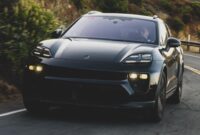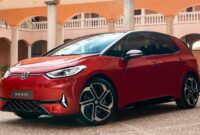When a car is unveiled, we first see how it looks inside and out before discovering the technical specifications and price tag. Much like interacting with people, first impressions are important. For those who see cars as more than just A-to-B means of transportation, a vehicle must look good to convince the prospective buyer to check out the specs. While beauty may be in the eye of the beholder, we can all agree repetitive designs are a big turnoff.
Volkswagen wants to avoid mistakes of the past by coming up with original designs for its many brands. Doing so will help the Group better differentiate a VW from a Skoda or a SEAT/Cupra as well as an Audi from a Porsche. To that end, “Success by Design” was the motto chosen by the automotive conglomerate’s Volkswagen Group Media Night event held before the 2023 IAA Mobility kicking off today in Munich.

44 Photos
VW Group CEO Oliver Blume – who is also in charge of the Porsche brand – said a “good design is an essential factor in delighting our customers.” With that in mind, the plan is to have “sharpened design identities, we design striking products and increase the differentiation of the brands.” He went as far as to say the VW Group will become a “design-driven company” and that each brand must have its own personality.
He pointed out this strategy is already in place by showing how the ID. GTI Concept looks substantially different than the Cupra DarkRebel even though the production versions coming in 2025 will use the same MEB Entry underpinnings. We’re being told the improved differentiation will come along with “higher design quality.”
The VW Group has no fewer than 10 brands under its large corporate umbrella: VW, VW Commercial Vehicles, Skoda, SEAT, Cupra, Audi, Lamborghini, Bentley, Porsche, and Ducati. Yes, Bugatti is missing from this lineup because it’s now the “Bugatti Rimac” joint venture, with the Rimac Group owning 55 percent of the shares while the other 45 percent belong to Porsche.




